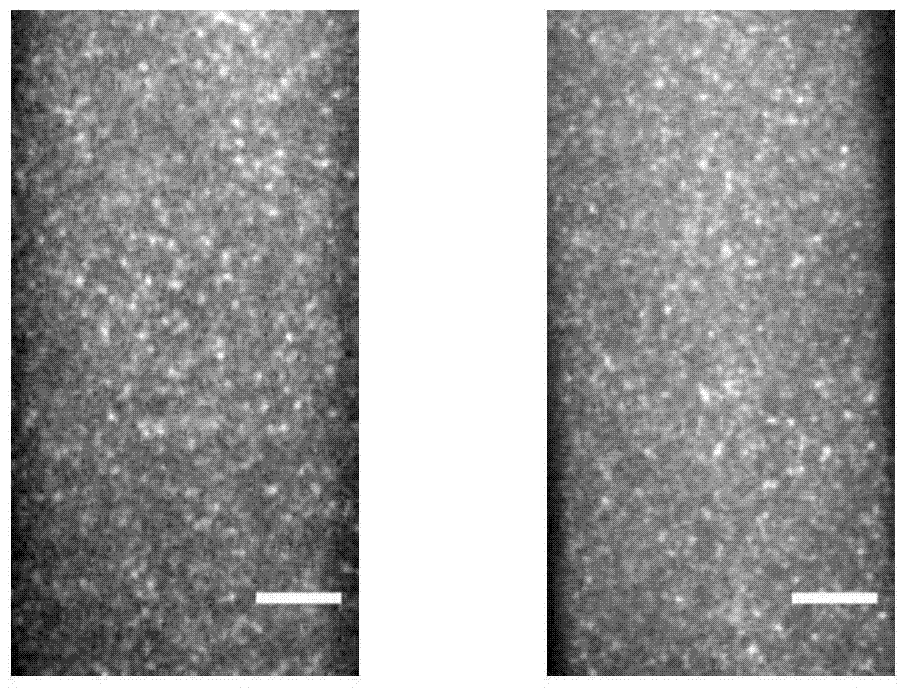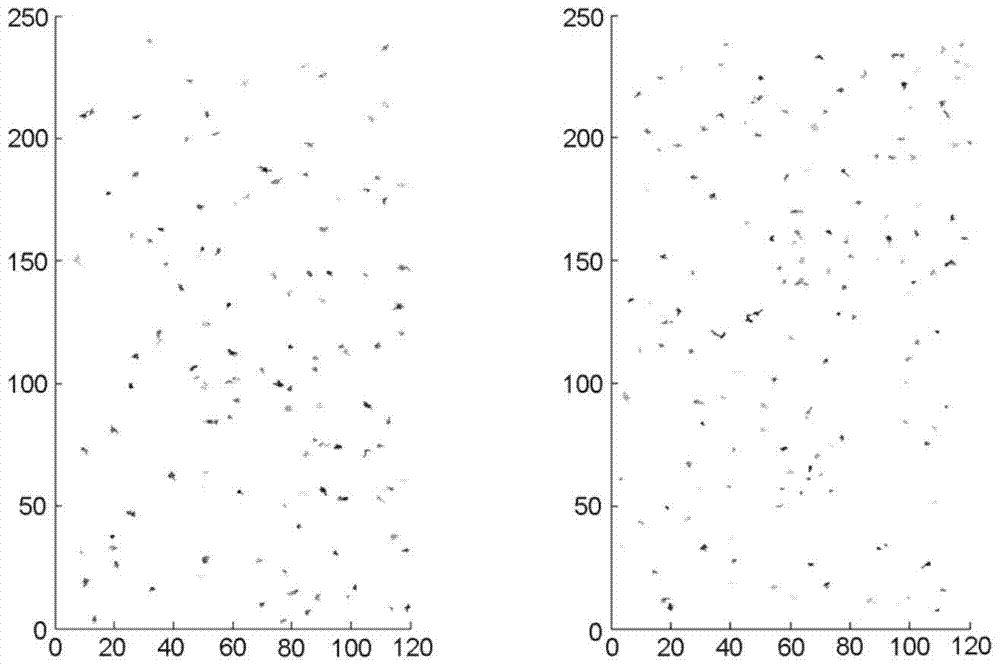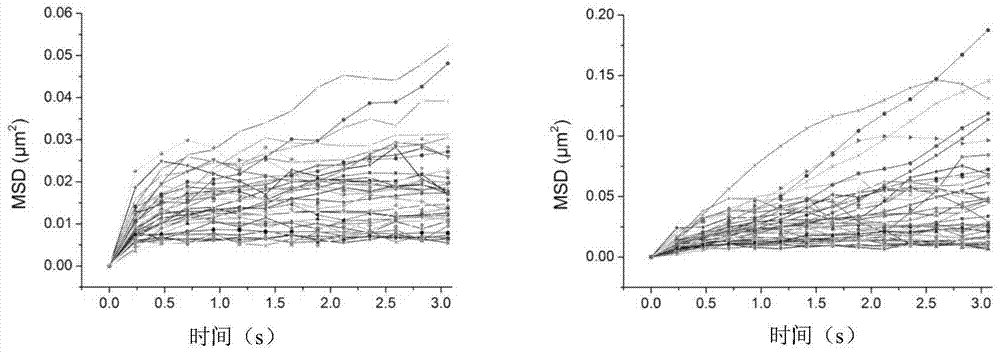A method for detecting the laterally restricted area of membrane proteins in living plants
A technology of laterally restricted area and cell membrane, which is applied in the field of detection of laterally restricted area of living plant cell membrane proteins, can solve the problems that have not been clearly reported, and achieve the effect of simple method and good repeatability
- Summary
- Abstract
- Description
- Claims
- Application Information
AI Technical Summary
Problems solved by technology
Method used
Image
Examples
Embodiment 1
[0038] Example 1. Detection of the laterally restricted area of phototropin phot1 on the cell membrane in Arabidopsis
[0039] The protein used to detect the laterally restricted area on the membrane is the Arabidopsis phototropin phot1, which is expressed on the epidermal cell membrane of the Arabidopsis hypocotyl. The phot1 tag was tagged using the green fluorescent protein GFP.
[0040] 1. Plant material
[0041] 1. Obtaining transgenic Arabidopsis
[0042] The Arabidopsis thaliana transformed into the fusion gene phot1-GFP in the background of the phot1-5 mutant used in the present invention is disclosed in the document "Sakamoto and Briggs. Cellular and subcellular localization of phototropin1. Plant Cell, 2002, 14:1723-1735" However, the public can obtain it from the Institute of Botany, Chinese Academy of Sciences.
[0043] 2. Cultivation of Arabidopsis seeds
[0044] Transgenic Arabidopsis seeds were placed in a 1.5ml centrifuge tube, soaked in 2.5% (volume fract...
PUM
 Login to View More
Login to View More Abstract
Description
Claims
Application Information
 Login to View More
Login to View More - R&D
- Intellectual Property
- Life Sciences
- Materials
- Tech Scout
- Unparalleled Data Quality
- Higher Quality Content
- 60% Fewer Hallucinations
Browse by: Latest US Patents, China's latest patents, Technical Efficacy Thesaurus, Application Domain, Technology Topic, Popular Technical Reports.
© 2025 PatSnap. All rights reserved.Legal|Privacy policy|Modern Slavery Act Transparency Statement|Sitemap|About US| Contact US: help@patsnap.com



